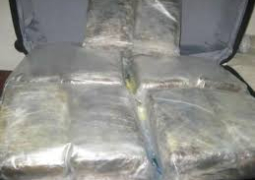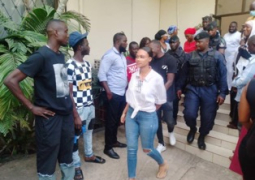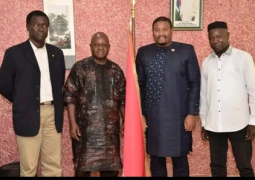
On 26 July, about a week ago, Niger’s President Mohamed Bazoum was ousted by the presidential guards led by guard commander Abdourahamane Tchiani. The ousted President Mohamed Bazoum was subsequently detained, and coup leader Brigadier General Abdourahamane Tchiani proclaimed himself de facto leader of Niger two days later.
Following this coup, which is the fifth in Niger, ECOWAS convened an emergency meeting and gave the junta a 7-day ultimatum to either reinstate the ousted president or face military action – a mission that The Gambia aligned itself with.
“However,
Sarr said that President Tinubu of Nigeria enthusiasm of military intervention reminds him of the commitment of late President Sir Dawda Jawara in 1990 when, as chairman of ECOWAS, mobilised the first multi-West-African force, the Economic Community of West Africa Monitoring Group (ECOMOG), to intervene in the Liberian civil war.
“Gambian troops, though unprepared for such a mission, were included in the force that landed in Monrovia in September 1990 for peacekeeping and peace enforcement,” he recalled.
The retired military officer explicated that the consequences for the Gambia Army were severe, leaving the troops emotionally and physically scarred and ultimately leading to the army rebellion in 1994 that overthrew the PPP government.
He added that it is evident that the army was ill-prepared for the nature and magnitude of the conflict it encountered in Liberia over three decades ago.
He also recalled the fate of two soldiers, saying: “The sad fate of the two Gambian peacekeepers, Lance Corporal Lamin Bojang and Private Same Jawo, killed in action in Liberia, whose corpses were abandoned without proper evacuation for decent home burial until 1996, is a poignant reminder of the risks involved in such missions.
“I, being a lieutenant in the army at that time, strongly opposed sending inexperienced, undertrained, and under-equipped Gambian soldiers to Liberia. However, our British adviser at the time, Colonel Jim Shaw, advised the government to proceed with the deployment, and they accepted,” Sarr recalled.
“Given the current circumstances, I implore President Barrow, whom I wholeheartedly support, not to approve the participation of the Gambia Armed Forces in this risky and ill-advised mission of attacking Niger. Unless we complete our long-awaited Security Sector Reform (SSR) in the Gambia, our troops should not be deployed in any war, especially one that takes place thousands of miles away. Please, Your Excellency, do not consider this option as I firmly believe that we are not adequately prepared for such an undertaking,” he implored.
Read Other Articles In Headlines
Senegal president appoint new Cabinet
Sep 8, 2025, 10:37 AM




